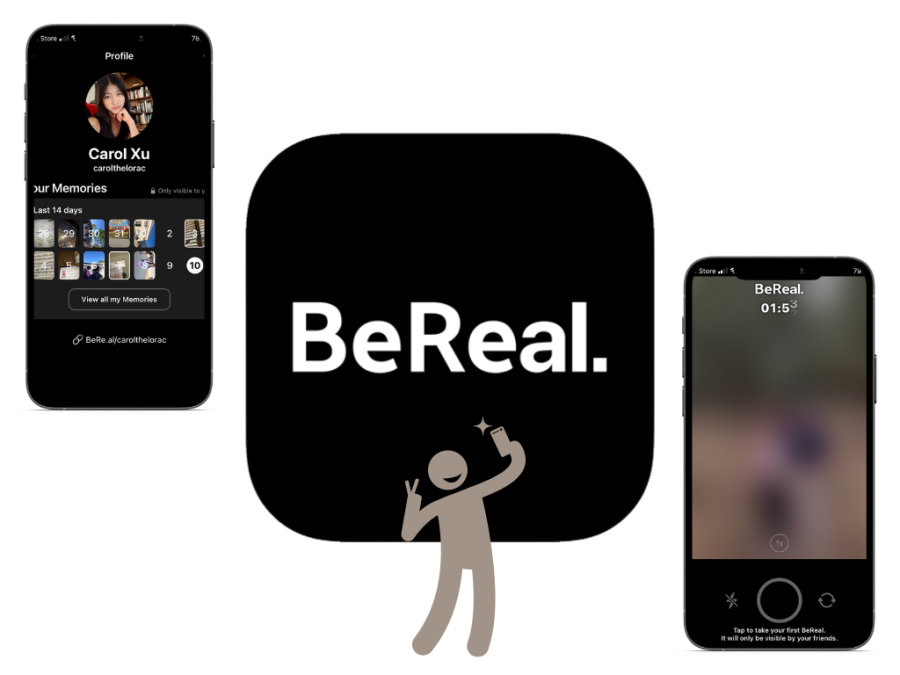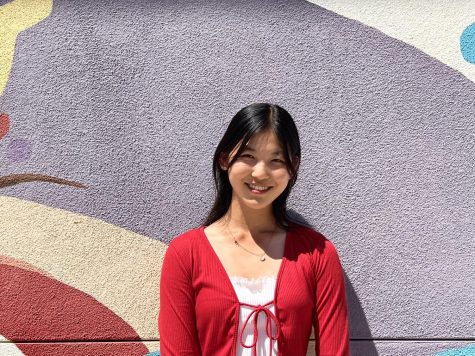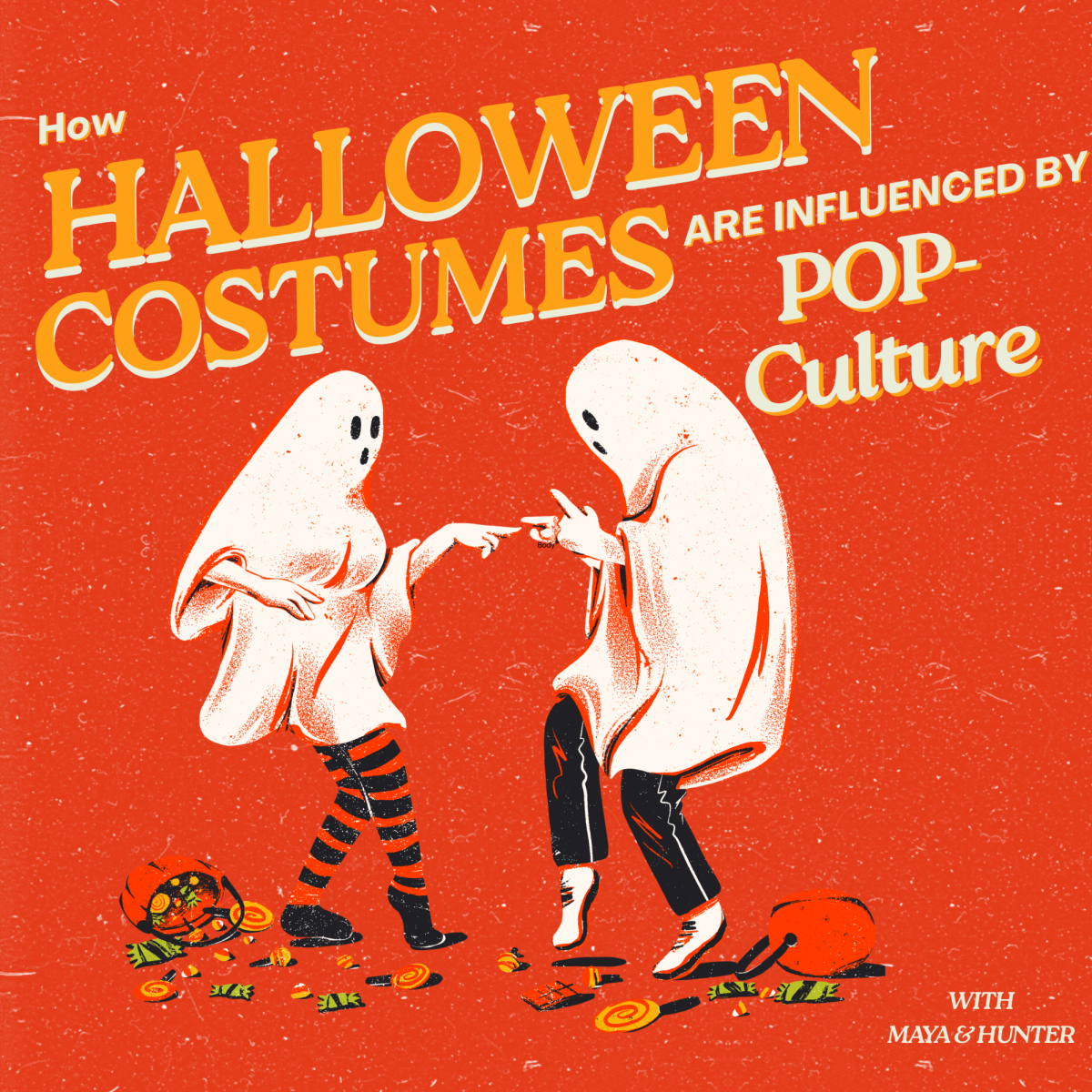A deep dive inside the new social media platform BeReal
BeReal has topped the App Store downloads chart and is on track to surpass Instagram as the most downloaded app in the United States.
October 2, 2022
Move aside Instagram, simmer down TikTok, there’s a new social media network on the horizon: BeReal. Founded by French entrepreneurs Alexis Barreyat and Kévin Perreau in 2019, BeReal is the new platform Generation Z now flock to, topping the App Store’s most downloaded apps list. The app thrives on the contradictory concept of presenting the mundane aspects of one’s life–a sip of boba, a page of math homework, some morning bedhead.
Here’s how it operates: at one specific, different time of day, BeReal sends out a notification to all its users to take a photo. Each person has a two-minute window to capture whatever they’re doing in the moment through the two-way camera that simultaneously snaps a selfie and frontal shot. The BeReal is then uploaded and sent to the user’s friends.
Friends can later react to each other’s posts with RealMojis, camera selfies of their actual expressions, or by commenting underneath.
“Not Another Social Network”
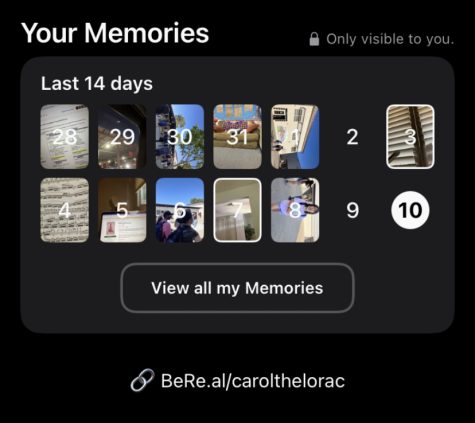
BeReal has become the opposite of traditional, popular social media. The app fully embraces this, with its tagline describing itself as “not another social network.”
Ramya Pulakhandam (‘23) first discovered BeReal in May from a friend in DECA, who convinced her to download the app. So far, her experience with the platform has been positive and fun.
“BeReal is authentic because people can see if you retook your post. It shows people if you’re being real or if you’re falling into the trap of social media, where everything has to look perfect,” said Pulakhandam.
UC Santa Barbara economics student and former BeReal ambassador Angelica Nisbet found BeReal through a Georgetown University friend. She said she appreciated the greater intimacy BeReal offers.
“I liked that I could still know what my friends were doing on the daily without necessarily having to reach out. I also liked how in the moment and real the photos are. BeReal is unique because its main use is to have friends post what they do the moment the notification is sent, allowing an opportunity for a genuine social media presence.”said Nisbet.
To be or not to be real?
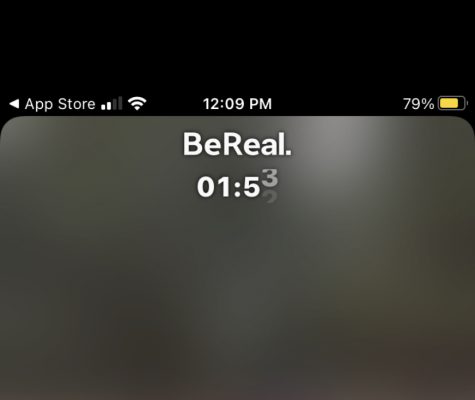
While the app strives for its users to build closer connections with their friends and show their true selves, this vision might not be entirely fulfilled.
Claire Lee (‘24) downloaded the app at the urging of her friends and enjoys uploading and scrolling through daily posts, but believes BeReal ultimately still lacks in authenticity.
“You can always do (your post) later, and you don’t have to do it at that moment. You can just send the Bereal when you’re actually doing something fun with a friend,” said Lee.
According to Nisbet, BeReal started successfully with users posting at the time of their notification, but during her work as ambassador she also began to notice the same problem as Lee.
“Many users are starting to ‘save’ or ‘wait’ on their BeReal notification to post one later when they are doing something more eventful, basically going against the morals of the app. However, I do think that there is a community aspect on BeReal of people who appreciate the authenticity,” said Nisbet.
For Lee and Pulakhandam, they both prefer using Instagram due to the platform’s versatility and many functions compared to BeReal.
“Instagram has a great longevity because there’s so many things to do on it, between reels, DMing, stories, and posting. It’s more sustainable,” said Pulkhandam.
However, Pulkhandam believes that BeReal still plays an important role in the modern age of social media, as other apps like Instagram and Snapchat have been known to fuel teenage insecurities.
“People are more aware of their mental health and how harmful social media can be as of recently, so they’re going to Bereal and oppose that,” said Pulhandam.

